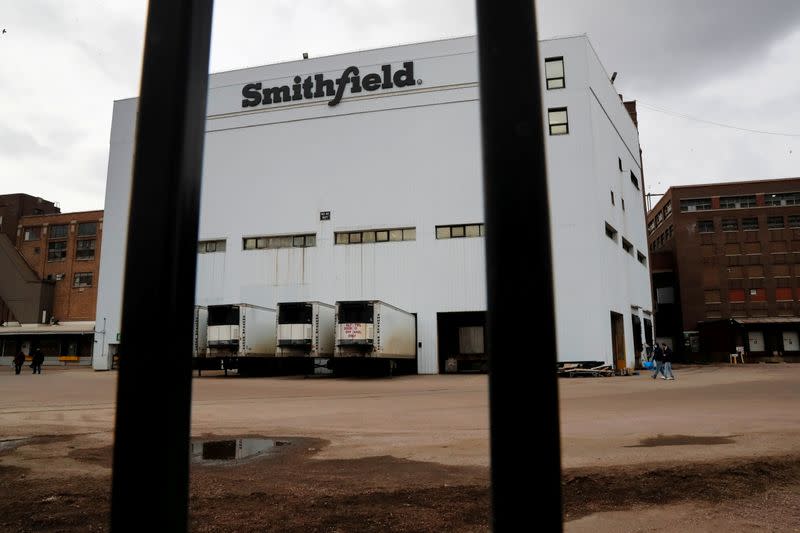Mexico rejected tainted pork at U.S. border before barring Smithfield plant
By David Alire Garcia
MEXICO CITY (Reuters) -Mexican inspectors have rejected three pork skin cargos at the U.S.-Mexico border since April from the biggest U.S. pork plant operated by industry giant Smithfield Foods as well as another shipper, the country's health safety agency told Reuters.
In Mexico, pork skins are mostly used to make chicharrones, a popular fried delicacy found in a variety of dishes, from tacos to soups. The skins are not as prized by American consumers, underscoring the complementary nature of the binational pork trade.
Mexico was the biggest export market for U.S. pork by volume before being surpassed by China in 2020.
After notifying U.S. authorities of the tainted skins, Mexico's health safety agency, Senasica, requested on June 16 that Smithfield's Tar Heel, North Carolina, facility's export license be revoked. The U.S. Department of Agriculture announced the suspension on Monday.
Last year, the plant exported 41,000 tonnes of skins, bacon and other pork products to Mexico, and this year through May another 24,000 tonnes, according to government data.
Smithfield, owned by Hong Kong-listed WH Group, said the issue is not related to Smithfield or the facility, but is due to a third party company. It said in a statement that authorities are working to resolve the matter.
Senasica said the third-party shipper was Rava Forwarding Inc, which also became ineligible to export from a cold storage facility in Laredo, Texas, on June 18.
Any resumption in shipments from either facility will likely take at least a few months, according to Senasica's press office.
Smithfield's Tar Heel plant - the world's largest - can slaughter more than 34,000 hogs daily, about 7% of U.S. capacity, according to industry estimates.
Senasica's decision to prevent further exports from the Smithfield and Rava facilities was based on the "accumulation" of tainted cargos of refrigerated pork skins.
Specifically, an April 15 rejection from the Tar Heel plant came after inspectors observed rotting product covered with "yellowish spots." Two subsequent rejections in June, which may have included a mix of product from both facilities, revealed more of the spots as well as fungus outbreaks.
Rava could not immediately be reached for comment.
(Reporting by David Alire Garcia; Additional reporting by Tom Polansek in Chicago and Adriana Barrera in Mexico City; Editing by David Gregorio)

 Yahoo Finance
Yahoo Finance 

